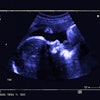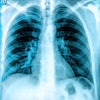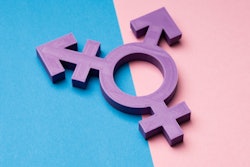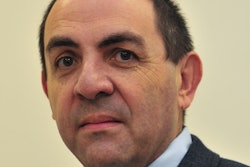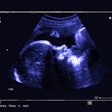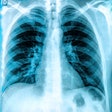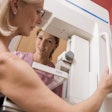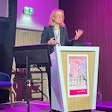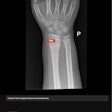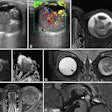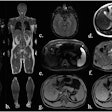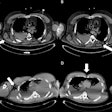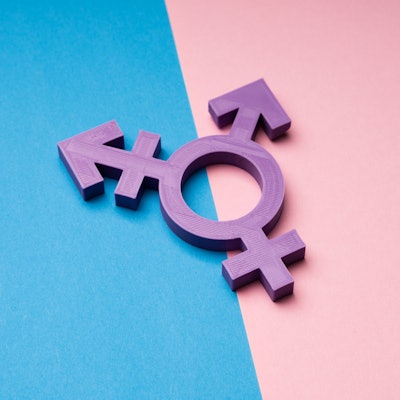
A woman who asked for her U.K. National Health Service (NHS) breast screening examination to be carried out by a female-born radiographer was referred to as a transphobe by a hospital group, according to a report published on 8 December by the Sunday Times.
Before she went for a mammogram on 24 December 2018, Clare Dimyon -- a 54-year-old lesbian who was raped as a teenager -- wrote formal letters asking to be seen by a "natal female," the newspaper reported. She explained that after being violated by a man, she did not consent to intimate procedures being carried out by people born as boys.
Staff at the Brighton and Sussex University Hospitals NHS Trust were "visibly shocked" but sympathetic, the Sunday Times article continued. The radiographer signed one letter, confirming she was female, and another letter was placed in the patient's medical records. But then Dimyon saw her letters highlighted by the trust as examples of "unacceptable" and "highly discriminatory" communications in hospital guidelines to support transgender patients and staff.
Dimyon's requests had been anonymized, but they were not given any context, and the trust failed to mention that they were written before a mammogram, the newspaper report added.
The hospital group's reaction
According to a trust statement published by the Sunday Times, "It is not possible to guarantee to any patient that they will only be treated by a clinician assigned to a specific gender at birth and, as an organization that prides itself on our commitment to diversity and inclusion, nor would we wish to do so."
The trust stressed the importance of patients seeing the clinician with the most relevant skills. "We have a duty to apply the same principles here as we would if a patient requested clinicians from particular backgrounds/ethnicities or any of the nine characteristics protected by law," it stated.
In effect, the trust was arguing that a woman asking for an intimate examination by another biological woman was as offensive as requesting a medic of a particular religion or skin color, according to the Sunday Times. Under the U.K. Equality Act 2010, it is illegal to discriminate against someone based on age, disability, gender reassignment, marriage and civil partnership, pregnancy and maternity, race, religion or belief, sex, and sexual orientation.
Intimate examinations
Dimyon -- who has won awards for her work on lesbian, gay, bisexual, and transgender rights -- told the Sunday Times she was shocked because it was "long-standing practice to ask for a lady doctor or lady nurse."
"We have an examination which involves clinicians handling your breasts and placing them on a mammography table in order for those pictures to be taken. Even on the door they say 'gentlemen stay outside,' meaning husbands and partners, I suppose, because they recognize this is an intimate examination," she said, noting that breast cancer screening rates would drop if women knew male-born clinicians could handle them.
"The NHS is spending a lot on trans training, so when is the awareness training going to start for survivors of rape and sexual violence?" she asked.
Feedback from readers
The Sunday Times article has led to dozens of postings on its website.
"Just for the record, men usually prefer to have their privates examined by a male physician. If we ask for a male, people understand straight away. Surely it's the same for women!" noted one male reader.
According to another reader, "Since the issue is about being examined by someone of the same sex as the patient, this NHS trust -- whom one would have hoped knew what biological sex is -- either makes the same mistake as many other people who can't get the difference between sex and gender right or (like some others in authority and in institutions) they are deliberately using the wrong term in their statements to keep the issue clouded in the hope of confusing normal people."
Deliberate misuse of the terminology -- to conceal not requiring the kind of separation that was really expected for so-called hospital single-sex wards -- has been noted by some commentators from a previous health secretary, the correspondent wrote.
"The NHS do-gooders overlook the fact that nobody was offended here. Requesting a specific gender isn't abusing anybody. This undermines the victims of real gender-based and race-based crimes. Common sense is officially a thing of the past," another reader stated.
Apology from hospital trust
The NHS trust has now issued an apology to Dimyon for including her letters as an example of transphobia, according to a report published on BrightonandHoveNews.org on 9 December.
"We are very sorry for any offense or upset caused by the inclusion of these letters in our equality and diversity guidance and have now removed them," a spokeswoman for the trust said.
"Patient care is always our top priority and we recognize that for some patients having clinicians of the same gender is important, particularly if an intimate procedure is required. We always work hard to try to meet these wishes and where possible will offer the presence of a same-sex chaperone or the rescheduling of an appointment if we cannot."
